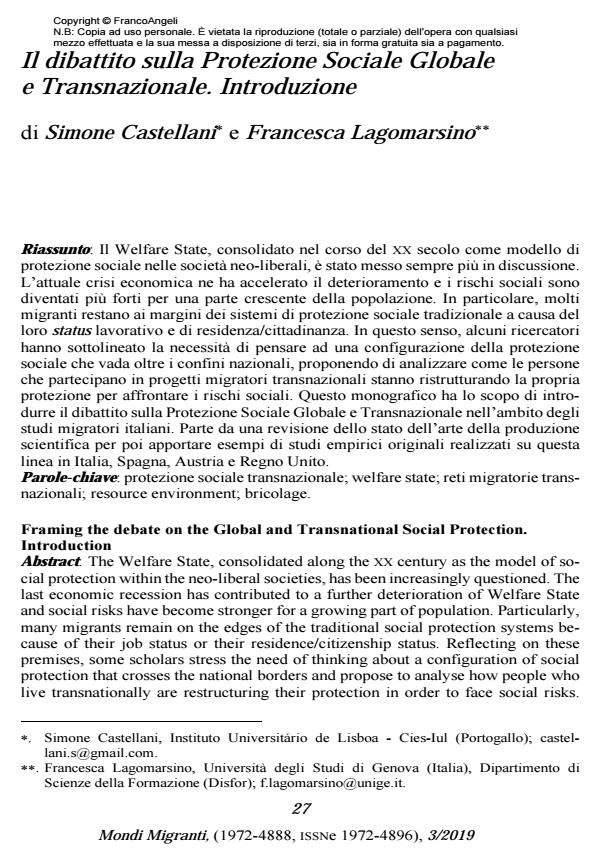Framing the debate on the Global and Transnational Social Protection. Introduction
Journal title MONDI MIGRANTI
Author/s Simone Castellani, Francesca Lagomarsino
Publishing Year 2019 Issue 2019/3
Language Italian Pages 16 P. 27-42 File size 196 KB
DOI 10.3280/MM2019-003002
DOI is like a bar code for intellectual property: to have more infomation
click here
Below, you can see the article first page
If you want to buy this article in PDF format, you can do it, following the instructions to buy download credits

FrancoAngeli is member of Publishers International Linking Association, Inc (PILA), a not-for-profit association which run the CrossRef service enabling links to and from online scholarly content.
The Welfare State, consolidated along the XX century as the model of social pro-tection within the neo-liberal societies, has been increasingly questioned. The last economic recession has contributed to a further deterioration of Welfare State and social risks have become stronger for a growing part of population. Particularly, many migrants remain on the edges of the traditional social protection systems because of their job status or their residence/citizenship status. Reflecting on these premises, some scholars stress the need of thinking about a configuration of social protection that crosses the national borders and propose to analyse how people who live transnationally are restructuring their protection in order to face social risks. This Special Issue aims to introduce the debate on the Global and Transna-tional Social Protection within the Italian migration studies. It starts from the state of the art and give example of original empirical studies carried out in this scien-tific line in Italy, Spain, Austria and UK.
Keywords: Transnational social protection; welfare state; transnational migration networks; resource environment; bricolage.
Simone Castellani, Francesca Lagomarsino, Il dibattito sulla Protezione Sociale Globale e Transnazionale. Introduzione in "MONDI MIGRANTI" 3/2019, pp 27-42, DOI: 10.3280/MM2019-003002